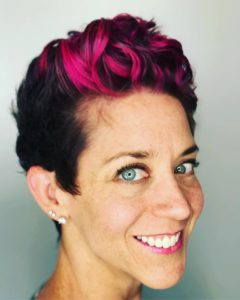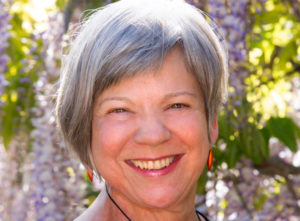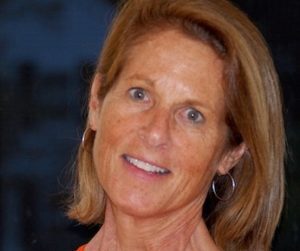
[Guest Blog Post by Katie Doble]
Knowing what to say to someone who has just been diagnosed with cancer is not easy, even if you have cancer yourself! Here are some general universal tips.
Don’t tell someone about all the people you know who died of cancer.
To the guy at the post office who overheard I had cancer and decided to strike up a conversation with me: I DON’T WANT TO HEAR ABOUT YOUR MOM, DAD, GRANDMA, GRANDPA, OTHER GRANDMA, UNCLE, COUSIN, AND DOG WHO DIED OF CANCER. If it’s not providing comfort, zip it.
Do tell them about the survivors you know.
I get nervous when someone says, “You know, my dad had Stage IV cancer…” Really? And he died…? “No, that was 23 years ago, and he’s still alive and kicking.” I LOVE YOUR DAD. I can’t get enough of this. My friend Lauren texted me about a woman named Esther who lived 20 years with uveal melanoma brain mets (like me) and died last year of totally unrelated health complications.
Don’t tell them what to do.
A cancer patient has a lot on his or her plate. They don’t need you to add to it. If you have a recommendation, suggest it. “My sister read a book called Radical Remission and said that it really gave her hope in her fight.” versus “YOU HAVE TO READ THIS BOOK!”
Think of unique gift ideas.
Organize a meal train. Send money to put toward self-care like reiki, massages, pedicures and acupuncture. I received a lot of plants when I was initially diagnosed and honestly, the idea of keeping them (along with myself) alive, overwhelmed me.
Consider starting a GoFundMe page (or other fundraising site).
The etiquette is that it should be started by a close friend/non-immediate family member. Make sure to get permission first, at least from an immediate family member. Even if it’s not likely that the person will incur medical expenses, the extra money can go toward travel to appointments or flying in loved ones.
Send encouraging texts/voicemails/cards, but don’t ask open ended questions and don’t get your feelings hurt if you don’t get a reply.
People don’t know what to do or say when someone is diagnosed. But we still want to know you’re thinking of us. Even a text that reads, “Thinking of you, here if you need me. No need to reply.” Don’t say, “Heard the news. How are you doing?” How do you think I’m doing? Emojis and GIFs are great. Even better, snail mail.
Just don’t ask questions in general.
“Do you have to get radiation? It sucks.” “Are you going to lose your hair?” These are examples of actual questions people asked me after my diagnosis. There’s the diagnosis, then there’s the plan. When we’re in between the two, it’s the scariest part of the process. Trust that the cancer patient is not intentionally withholding information from you. And if they are, that’s okay. It’s not about you. See #8.
Don’t make it about you.
A friend of mine really struggled with my initial diagnosis and would make comments like, “I need you to let me go to New York with you.” I had to tell her, “I can’t have you telling me what you need right now.” I love her dearly, and I know she was hurting because she loves me so much. We’ve since talked about it over tears and wine. It was a difficult time for everyone. Make the patient aware that you are there when they need you but keep your emotions in check.
Keep up with CaringBridge (or whatever means the patient is using to keep everyone informed).
It seems that sometimes the closest people to me think this does not apply to them. They might see me weekly or daily and think, “I’ll just get the scoop when I see her.” Patients put a lot of effort into CaringBridge posts so they don’t have to repeat themselves.
Be direct in how you want to help.
So many people say to me, “Let me know what you need,” or “I’m here if you need anything.” I don’t always know what I need. My friend Shayne texted me, “Hi guys! I’d love to bring over some dinner and groceries for you tomorrow. Would that be okay?” Umm. Yes! What a brilliant idea.
Unfortunately, anymore, we all know someone with cancer. I hope you find these tips informative.
Katie Doble is a writer, motivational speaker, and stage IV cancer thriver. In 2013, Doble was diagnosed with ocular melanoma, which left her blind in her left eye. The following year, doctors discovered it had spread to her liver and in 2018, her brain. In 2021, Doble was rendered NED (no evidence of disease) after TIL therapy treatment done at UPMC-Pittsburgh. Doble credits a mix of integrative healing, positive attitude, and Western medicine for allowing her to thrive with cancer for nine years and counting. She looks for the silver linings (or #CancerPerks) in everything cancer has thrown her way. In 2017, Doble was given the Courage Award from the Melanoma Research Foundation. In 2018, a five-part series on living wills written by Doble was featured on the Denver Hospice blog and picked up by Denver’s local Fox affiliate. Doble was the 2021 recipient of First Descents’ Out Living It Award. Follow her at Twitter and Instagram @ceortman and at futurehappyself.com.
Katie is part of the Official NCSD Speakers Bureau Roster. To access the Roster, register your event today.




